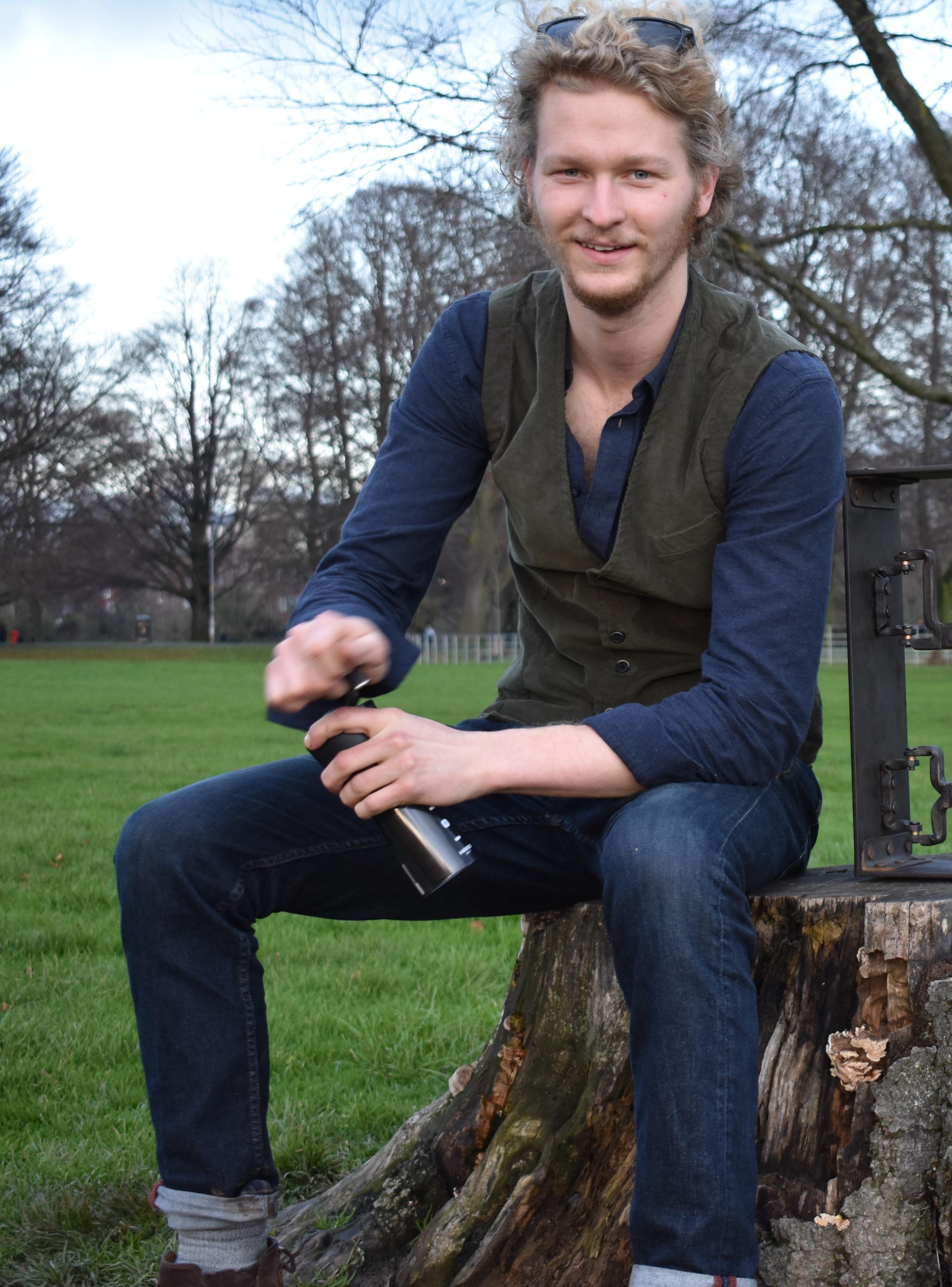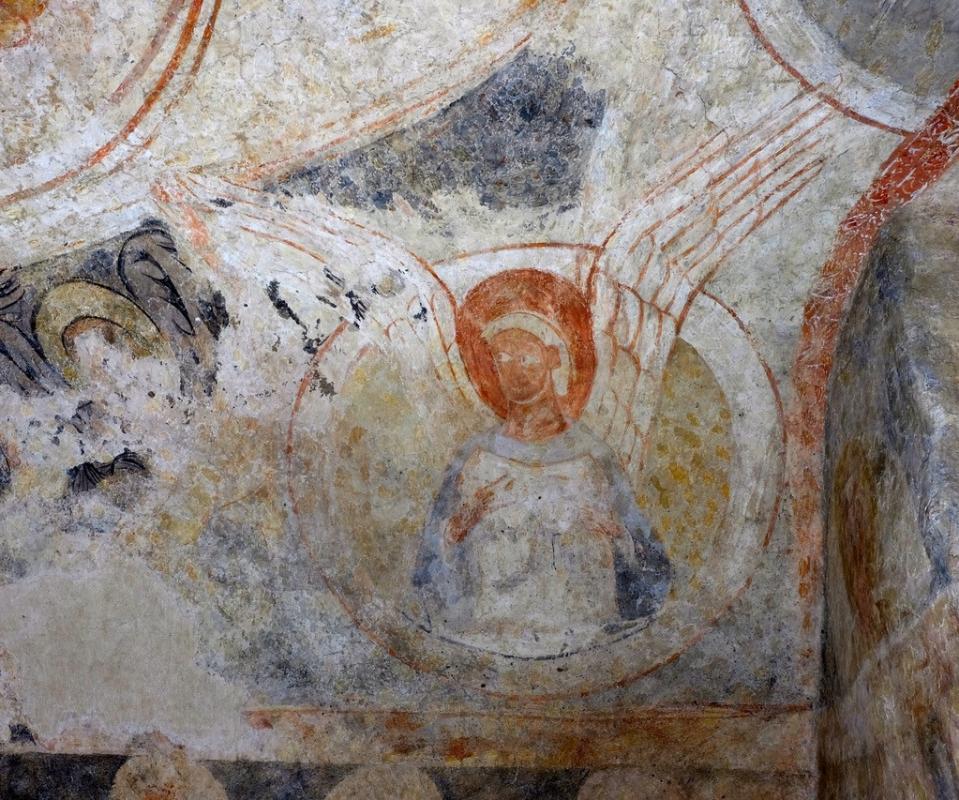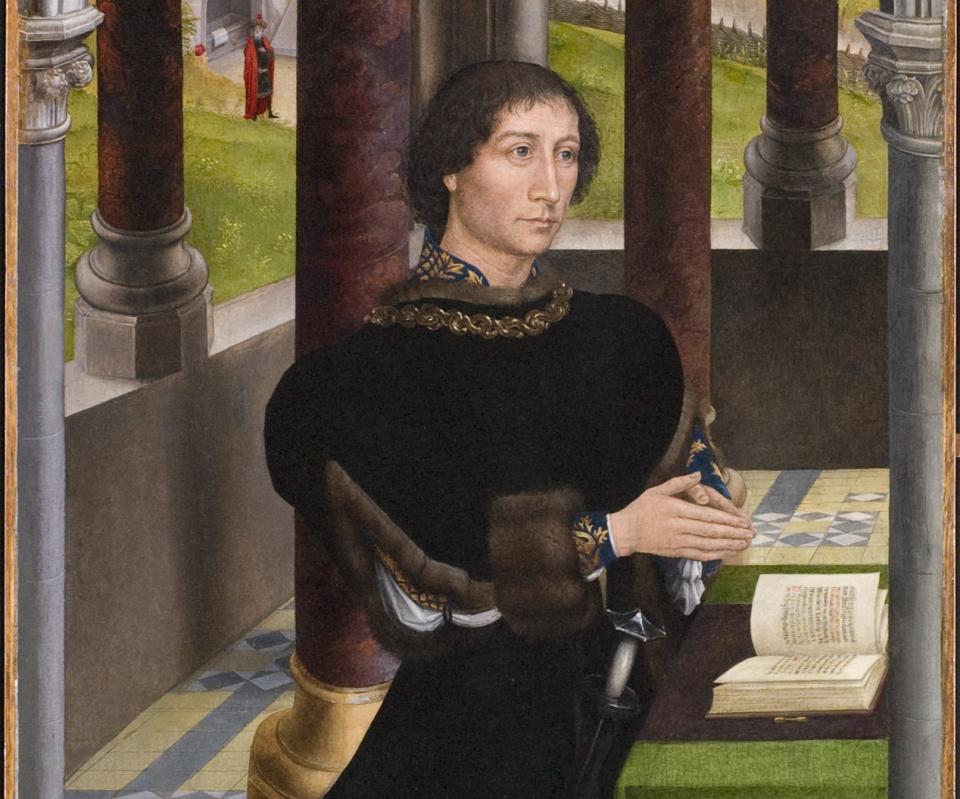
The man with the hammer: Sam Matthijs is training to be an artist blacksmith
Sam Matthijs (22) has chosen an unusual higher education course: he is attending an artist blacksmithing course in the UK. He has received a study grant for this from the Platform for Education and Talent, created by the family of Gustave Boël and the holding company Sofina, working alongside the King Baudouin Foundation.
“People often think of blacksmiths as something from the past, a trade from the Middle Ages. That is not true. We still use a furnace, hammers and anvils, but we also use machines that were not available in the past - like pneumatic drop hammers. Above all, we use all those ancient and modern techniques to create contemporary objects. The items we make have a function and a role in today's society.”
“I see blacksmithing mainly as an outlet to express myself: I want to make my own designs, mainly interior design items. As it happens I finished a coffee table today, made to a very simple and quite futuristic design. Before that I was working on a coffee set. I want to make unique items that users can really relate to. Not the mass-produced products you would buy in a shop.”
Sam Matthijs is now following the three-year course in Artist Blacksmithing at the Hereford College of Arts in the UK.
“There are two main streams in the course: technical aspects of blacksmithing and the design process itself. When you are designing something it is very important to understand how your material moves. Heated iron becomes plastic, so it is as if you can mould it on the anvil. It also has its own character. There are limits to what you can do with it. You have to understand and respect those when you are designing things.”
A year out
"When I was at secondary school I studied industrial science. Normally you would go on to study engineering science after that, but I didn’t really want to do that. I seem to have a creative mind: always designing and making things.”
“After secondary school I took a year out. I experimented with making jewellery, but it was all a bit too small for me. Then I saw that Paul Dekker was giving a workshop in blacksmithing in Tielrode, not far from my home. So I enrolled and discovered that I really liked it.”
“After my year out I studied product design for one semester in Antwerp. That was a really good course, but it was not what I was looking for. People often had a similar response to my designs: “Oh no, that will be too difficult to make! It’s not suitable for mass production!” That was not really what I wanted anyway. I have noticed that - certainly among people of my age - there is a kind of move back to things that are sustainable, well designed and aesthetically pleasing. We want to own objects that you can buy once and then use for the rest of your life, and maybe even pass on to your children.”
Hours in the smithy
"Those were the things I wanted to design, so I caught the blacksmithing bug. I started looking on Google: is there a full-time higher education course for a future blacksmith? In the end I found three bachelor courses in the world, one in the US, one in Sweden and one in Hereford, in the UK, where I am studying now. The one in the US is very traditional and technical, and does not involve much design. In Sweden they are more oriented towards fine art, and don’t do as much with the techniques. Here in Hereford I have found the perfect middle way. It is a tough course. We work 45 hours a week, spending about a third of that time in the smithy. Some students have a design background and need to work on their blacksmithing but for others it is the other way round. We do a lot of theory of art and art history, we learn to use design software on computers, and we acquire skills that we might need as a blacksmith: woodwork, welding, 3D printing etc."
"I am in the final year of my university bachelor’s course now. These three years have been exciting and busy, especially with Covid as well. Sometimes we were not able to work in the smithy, but we made up for it later on.”
Journeymen
"Paul Dekker told me there are funds and grants for people who want to study (artistic) crafts. He pointed me towards the King Baudouin Foundation and the Platform for Education and Talent. You have to provide a lot of information to support your application: what you want to study, where, why, how much it will cost etc. It’s like a real project plan. They approved my application and with their support I have been able to attend the course.”
“I know I have built a very strong base now for what I want to do: creating my own designs as a blacksmith. At the same time, I understand that this is just the beginning. There are new challenges to face and new problems to solve all the time.”
“I want to follow in the footsteps of the Wandergesellen (Journeymen) in Germany, those trainee craftsmen who travelled from one city to another, apprenticing themselves to the best craftsmen in every place. After about five years they returned to their own city and could then establish themselves as a master craftsman. Through social media it is easy now to get in contact with blacksmiths all over the world. So I am going to talk to a few people: can I come and work for you for a while, in exchange for board and lodgings? I don’t need to be paid, I mostly want to learn.”
“After that I might go for that Master of metal arts in Sweden, or maybe not. In the end I definitely want to go back to Belgium. I don’t just want to ride this wave of sustainability and craftsmanship. I want to help drive it. I will pass on my craft to the next generation if I can. Meanwhile I will carry on making things, designing things and creating things.
“I want to make unique items, not the mass-produced objects you can buy in any shop.”
Are you working in a heritage craft in Belgium? Are you between 20 and 45 years old and want to improve your skills in your chosen craft? You can apply for a grant from the Platform for Education and Talent. Submit your application by 26 August 2021.
About the Platform for Education and Talent
The Platform for Education and Talent was set up in 2011 by the family of Gustave Boël and the holding company Sofina. It works alongside the King Baudouin Foundation to support education and training of talented people in Belgium. The Platform's activities are based on three pillars: it awards study grants and supports talented young people involved in heritage crafts, it provides study grants and support for young academics who want to continue their training at a respected university abroad, and it helps talented students from socio-economically vulnerable families in Liѐge and Antwerp to achieve success. A total of 138 study grants were awarded to young people between 2013 and 2020, with a value of 1,952,510 euros in all.
Other stories
Inspiring engagement!

The Alma Fund, a multifaceted charitable commitment
Heritage and culture Health Climate, the environment and biodiversity
"We thank the life that gave us the possibility of supporting causes that are close to our hearts."

Philanthropist allows work by Memling to return to Bruges
Heritage and culture
“I see Bruges as a rare jewel. This contributed to my decision to ensure that this work from my collection would be returned to Bruges.”
Other press releases

15 European leaders of socially engaged arts organisations selected for a new fellowship
A new European fellowship celebrates 15 visionary leaders of arts organisations who place social impact at the heart of their work, both in their local communities and across the…

11 leading European Foundations Launch Pioneering Programme to Support Arts for Social Change and Civic Participation Across Europe
Eleven major European philanthropic foundations, including the King Baudouin Foundation, are joining forces to launch an alliance aimed at promoting socially engaged art. The aim…

The King Baudouin Foundation at BRAFA 2025: preservation of cultural heritage; an exhibition of recent and remarkable acquisitions
The KBF presents a selection of exceptional works from its collection and highlights its commitment to the preservation and promotion of Belgian and international heritage.